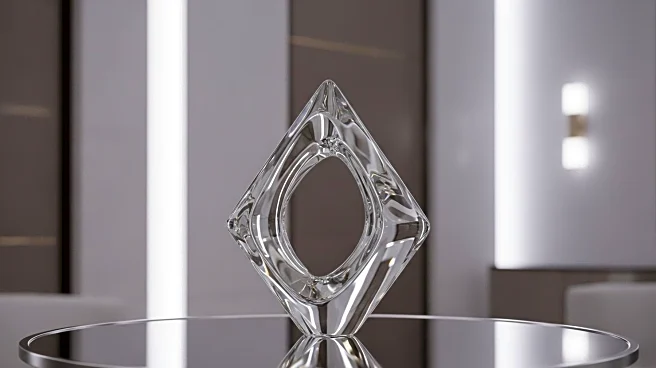What is the story about?
What's Happening?
Luxury brands are facing challenges in connecting with Gen Z consumers, who are increasingly skeptical of high prices and polished brand narratives. Raised on platforms like TikTok and YouTube, Gen Z shoppers prioritize value and transparency, often opting for vintage and resale options over new luxury items. This shift in consumer behavior is driven by a desire for authenticity and meaningful engagement, rather than traditional aspirational marketing. Brands are being urged to provide greater transparency regarding materials and craftsmanship, and to participate in the second-hand ecosystem to rebuild trust with younger consumers.
Why It's Important?
The changing preferences of Gen Z have significant implications for the luxury industry, which has traditionally relied on exclusivity and high price points to attract consumers. As Gen Z becomes a more dominant consumer group, luxury brands must adapt their strategies to meet the demand for transparency and value. This could lead to a broader shift in the industry towards more sustainable practices and inclusive marketing. Brands that fail to adapt may lose relevance and market share, while those that embrace these changes could strengthen their connection with a new generation of consumers.
What's Next?
Luxury brands are likely to explore new ways to engage with Gen Z, including collaborations with influencers and creators who resonate with this demographic. There may be an increased focus on storytelling that highlights real processes and credible creatives, moving beyond traditional heritage narratives. Brands might also invest in digital platforms and content that feels authentic and relatable, rather than polished marketing campaigns. As the industry evolves, stakeholders will be watching closely to see which brands successfully navigate this transition.
Beyond the Headlines
The shift in Gen Z's consumer behavior could have broader cultural implications, challenging the traditional notions of luxury and exclusivity. This generation's emphasis on value and authenticity may influence other industries, encouraging a move towards more ethical and sustainable practices. Additionally, the rise of second-hand and vintage shopping could contribute to a more circular economy, reducing waste and promoting environmental responsibility.
















